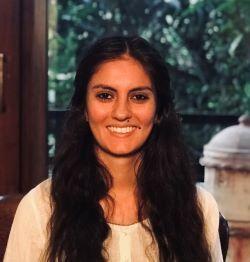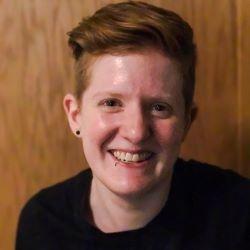Announcing 2023-2024 Graduate Labor Research Grant Recipients
Each year, the Harry Bridges Center for Labor Studies awards thousands of dollars in research funding to University of Washington graduate students and faculty. Since 1992, the Center has awarded over one hundred grants, producing dozens of reports, books, articles, and more. We are pleased to announce the recipients of Labor Studies graduate student research funding for the 2023 - 2024 academic year.
|
Jacob Beckert, Department of History Profit in the Holy Land: American Capital and Development in Palestine Jake Beckert is a Ph.D. Candidate in the department of history at the University of Washington Seattle. Jake’s dissertation "Profit in the Holy Land: American Capital and Development in Mandatory Palestine" examines the effects of American capital investment, particularly from Jewish “non-Zionists” on Jewish industry and agriculture in Mandatory Palestine. Jake’s research focuses on the Palestine Economic Corporation (PEC), a for-profit corporation founded in 1926 by some of America’s most important Jewish leaders to support Jewish enterprises in Palestine on a “non-political” and “strictly business basis.” With funding from the Harry Bridges Center Jake will conduct research in Israel investing how agricultural workers and industrial laborers in Mandatory Palestine responded to this American investment. Of particular interest is how and when this investment intensified and/or ameliorated conflict between Jewish and Arab workers, and how this reality clashed with the PEC's claims of fostering inter-communal peace through economic prosperity. Furthermore, Jake is interested in investigating how Jewish socialist workers, in particular those on farming collectives and cooperatives, responded to receiving such significant financial backing from a proudly capitalist institution, and how they reconciled their ideals with this reality. Recipient of the 2023-2024 Charles Bergquist Labor Research Grant |
|
Nastasia Paul Gera, Department of Gender, Women & Sexuality Studies Producing Wildness: The Gender & Sexual Politics of Wildlife Tourism Nastasia’s research foregrounds the theorizing, aspirations, and lives of Gond people, an Adivasi community and Scheduled Tribe in India. Her work strives to interrogate how Gond people are marginalized on lands that they once ruled as queens and kings. She will do this by exploring the politics of wildlife tourism in Satpura National Park in Madhya Pradesh, India, asking: 1) How is the “wild” produced for consumption? 2) What social and material relations emerge among differently positioned human and nonhuman actors in the process? Thus, Nastasia will destabilize taken-for-granted meanings of wildness in order to examine the contentious everyday labor through which it is produced for tourists. She will use gender and sexuality to interrogate how power is configured and distributed, as well as contested, in the process. |
|
Caitie Lustig, Department of Human Centered Design & Engineering A Critical Examination of Psychometrics in Algorithmic Hiring Systems Caitie Lustig is a PhD candidate in Human Centered Design & Engineering. Their work is situated in the intersection of Human-Computer Interaction, Computer-Supported Cooperative Work, and critical algorithm/data studies. Caitie's dissertation, titled A Critical Examination of Psychometrics in Algorithmic Hiring Systems, will focus on examining how algorithmic hiring systems try to determine job applicants’ personalities or inner qualities, and the societal and personal consequences of doing so. These platforms use artificial intelligence (AI) technology to automate stages of the hiring process (i.e., sourcing, screening, interviewing, and selection). Algorithms have the potential to make hiring an even more inequitable process than traditional hiring processes: research has shown that algorithmic hiring systems have the potential to reinforce racism, ableism, and sexism. Through research on the socio-historical roots of these systems, as well as studies with developers of these systems, the academic career counselors that train students to use them, and with students, Caitie's work will have following contributions: (1) mappings of the infrastructure of these systems—showing that bias is not located in one place or one technology; (2) an expansion of theories of power and subjectivity into the space of algorithmic hiring systems using historical and current documentation and marketing materials; (3) a better understanding of how people make sense of these technologies and an identification of the harms that they experience, as well as the benefits and workarounds; (4) better understanding of the work that people do to create these systems, as well as their harm mitigation strategies; and (5) recommendations based on the identified harms, uses, and current work practices. Caitie is very grateful for the support of the Harry Bridges Center for Labor Studies. |


